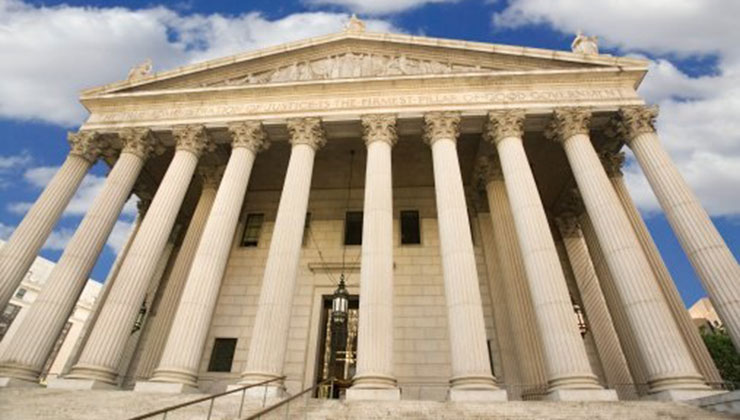Understanding the seven key issues in Supreme Court’s BBI ruling

Supreme Court judges framed seven issues for determination in the appeal case on the verdict of the Constitution Amendment Bill, 2020, which had its final funeral rites conducted on Thursday, after majority of the judges in the apex court reaffirmed the Court of Appeal ruling that the process was unconstitutional.
However, the President and the Independent Electoral and Boundaries Commission (IEBC) appeared to have carried the day in the ruling after the issues that had been challenged were accepted.
The framed issues were basic structure doctrine, whether the president can initiate a popular initiative, whether the second schedule of the BBI Bill is unconstitutional, Presidential immunity, IEBC quorum and, obligation on IEBC to ensure that promoters of BBI Bill complied with requirements for public participation as well as where the referendum should have been in form of questions.
Basic Structure
In the country, the basic structure doctrine refers to the process of changing the constitution as provided for in Article 255 of the Constitution which gives guidance on how the supreme law can be changed.
Justices Martha Koome (CJ), Philomena Mwilu (DCJ), Smokin Wanjala, William Ouko, Isaac Lenaola and Njoki Ndung’u rejected the application of the basic structure doctrine but Ibrahim Mohammed dissented.
Is President allowed to initiate a popular initiative to change the constitution?
Five Judges, with the exemption of Njoki and Lenaola, sided with the High Court and the Court of Appeal that Uhuru errored by being the initiator of the constitutional reform project.
The Judges re-affirmed the Court of Appeal’s ruling that the Constitutional Amendment Bill, 2020, was unconstitutional on grounds that President Uhuru Kenyatta initiated the constitutional reform project.
The apex court ruled that Uhuru ought not to have initiated the referendum issues, through a popular initiative which is against Article 257 of the Constitution which guides the process of amending the supreme law, with five of the seven judges saying the president is not an ordinary citizen and therefore should not have to lead the project.
According to Article 257, an amendment to this Constitution may be proposed by a popular initiative signed by at least one million registered voters, maybe in the form of a general suggestion or a formulated draft Bill, should be in the form of a general suggestion, the promoters of that popular initiative shall formulate it into a draft Bill.
Promoters of a popular initiative shall deliver the draft Bill and the supporting signatures to the Independent Electoral and Boundaries Commission, which shall verify that the initiative is supported by at least one million registered voters and if IEBC is satisfied that the initiative meets the requirements, the Commission shall submit the draft Bill to each county assembly for consideration within three months after the date it was submitted by the Commission.
If a county assembly approves the draft Bill within three months after the date it was submitted by the Commission, the speaker of the county assembly shall deliver a copy of the draft Bill jointly to the Speakers of the two Houses of Parliament, with a certificate that the county assembly has approved and be introduced in Parliament without delay.
A Bill should be supported by a majority of the members of each House before being submitted to the President for assent in accordance with Articles 256 (4) and (5).
Immunity of the President
All judges agreed with the president’s appeal which was filed by the Office of the Attorney General Kihara Kariuki.
President had cited for failing the leadership and integrity test and the courts warned could be held culpable for abusing the law by acting in excess of his powers when he initiated the process of amending the Constitution, and although they agreed that he initiated the project.
But the Supreme Court found that the intention of Article 143(2), which provides immunity to the President, is to immunize/protect the President from civil proceedings during his tenure in office for acts or omissions connected with the office and functions of the office of the President, saying the High Court and Court of Appeal erred by attempting to amend the provisions of the Constitution through a Judgement.
The Court of Appeal had ruled that the BBI constitutional committee, a body created by the president, was illegal, adding that Uhuru had failed the leadership and integrity test and warned that the president could be sued in his personal capacity because the president does not have the authority under the constitution to initiate changes to the Constitution and that a constitutional amendment can only be initiated by Parliament through a Parliamentary initiative under Article 256 or through a popular initiative in Article 257 of the Constitution.
IEBC was legally constituted because it had only Commissioners
IEBC had joined in the appeal, protesting the decisions of its constitutional composition, quorum and mandate in the handling of the Constitution of Kenya Amendment Bill, 2020, particularly when it was handling the verification of the signatures.
Initially, IEBC had seven commissioners, but by the time it was handling the matter, it had only three- Wafula Chebukati who was the chairman, Abdi Guliye and Boya Molu after four others resigned and the matter was widely litigated in both the High Court and the Court of Appeal.
Just days before the October 26, 2017 repeat election, Commissioner Roselyn Akombe resigned and fled the country while in April 2018, vice-chair Consolata Nkatha, Paul Kurgat and Margaret Mwachanya resigned, and accused Chebukati of failing in offering leadership at the commission.
But majority of the judges, safe for Justice Ibrahim, agreed with the IEBC which said, by having three commissioners, it was properly constituted and did not have the obligation to ensure promoters of the BBI bill complied with requirements for public participation.
“The IEBC was legally constituted. It was composed of the minimum number of three commissioners [as] stipulated in Article 51 of the Constitution. As such, I find that IEBC was constitutionally and legally composed when it undertook the [signatures] verification process under Article 257 of the Constitution.” Koome said
The Second Schedule of the Constitutional Amendment Bill, 2020 was unconstitutional.
The judges agreed with the High Court and Court of Appeal that the Bill was in violation of Article 10 and 87 of the Constitution because BBI proponents overstepped their mandate by allocating and apportioning 70 new constituencies.
They argued that it abused Article 10 which provides for the national values and principles of governance by all State organs, State officers, public officers and all persons whenever any of them applies or interprets this Constitution, enacts, applies or interprets any law; or makes or implements public policy decisions.
Further, the Bill, they ruled was in breach of Article 87 which guides electoral disputes, and provides that parliament should enact legislation to establish mechanisms for timely settling of electoral disputes, petitions concerning an election, other than a presidential election, shall be filed within twenty-eight days after the declaration of the election results by the Independent Electoral and Boundaries Commission.
Public participation
The judges ruled that public participation was not properly done, but some of them observed that there was reasonable public participation during the BBI (1), but the same was not replicated in further amendments introduced in the BBI (2) which proposed to create 70 new constituencies, terming it unconstitutional.
“The transmission of the BBI Bill to the bicameral Parliament and the County Assemblies is evidence of public participation. There was reasonable public participation for the BBI bill except for the second schedule which was a late amendment,” Koome said, a position that was taken by the majority.
However, the judges unanimously exonerated the IEBC on the issues, saying there was no obligation under Article 10 and 257 (4) of the Constitution, on IEBC to ensure that the promoters of the Constitution of Kenya (Amendment) Bill, 2020 complied with the requirements for public participation.
Referendum questions
Opponents of the Bill had challenged the manner in which the amendments were being put to Kenyans, and were seeking a determination as to whether specific constitutional amendments were to be submitted as separate and distinct questions in a referendum ballot paper, or whether multiple questions may be contained in a single referendum ballot paper.
But the judges ruled that multiple referendum questions were not ripe for determination, with Koome saying, “The Majority were of the view that IEBC had not had an opportunity to address its mind and make a determination on whether Article 257(10) of the Constitution requires that all specific proposed amendments to the Constitution should be submitted as separate and distinct referendum questions.”

















